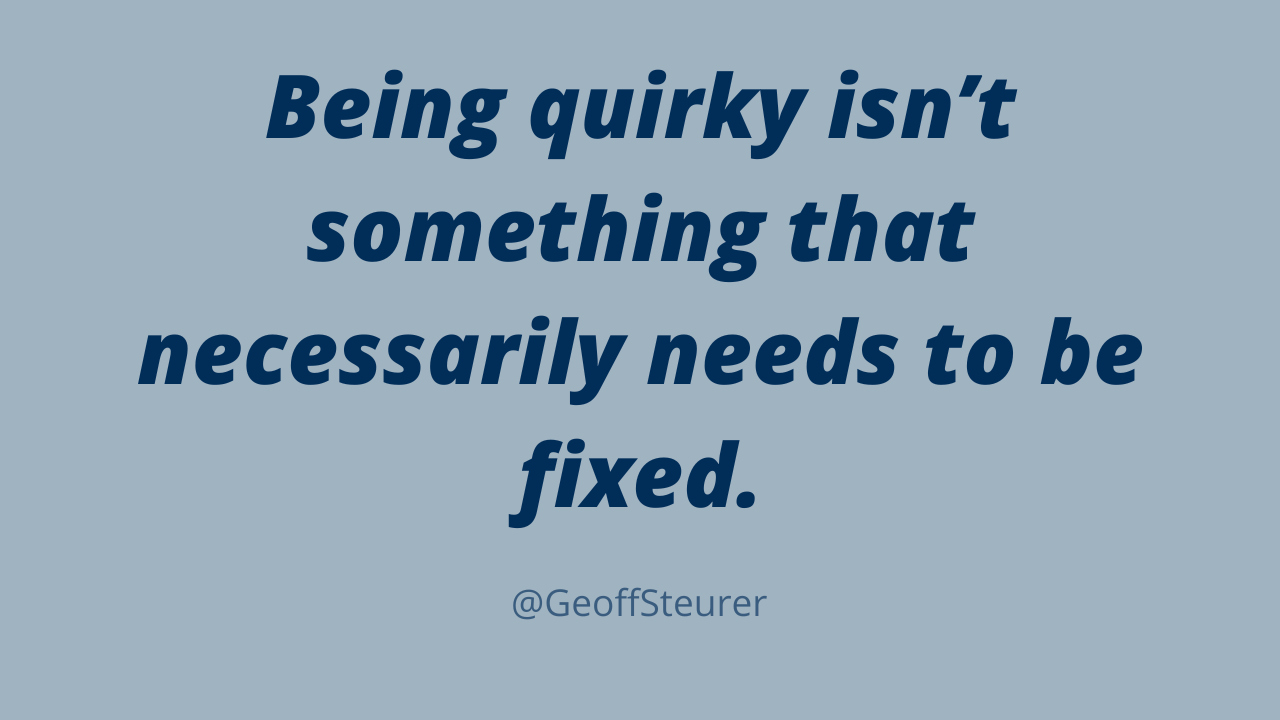
Q&A with Geoff: Should I Be Worried About My Adult Son's Lack of Social Skills?
Question
For some time, I’ve wondered if my oldest son may be on the autism spectrum or have some kind of social disorder. He is currently a single college student. He is so faithful and so kind. However, it seems to me that there is always something off in his social interactions.
It appears that he is usually rejected by girls he’s interested in dating as well as male friends he admires and would like to be closer to. He does crazy things sometimes to get social attention and approval. He comes off as quirky and as not having street smarts by some family members. He is also very forgetful and regularly loses valuables and forgets to do things that are important.
What do you think he can do to relate to others better? I don’t want to plant ideas in his head by suggesting to him that he needs help with his social skills or that he may be on the autism spectrum. I’m hoping that I’m just an overprotective, overworried mother.
Answer
It’s likely you are picking up on something important here, but it’s not clear to you if your son is communicating his social distress to you. If you’re observing something that concerns you, he may not care right now to do anything about it. On the other hand, if he’s sharing his frustration and seeking help for his social struggles, then you can provide more direct guidance. Let’s discuss both approaches.
If your son is coming to you looking for support and solutions to his dilemma, then I recommend you first educate yourself about the autism spectrum so you can understand how to discuss it in a helpful way. I once heard someone say, “If you’ve met one person on the spectrum, then you’ve met one person on the spectrum.” Educating yourself about the potential autism spectrum presentation is less about categorizing him and more about finding words to help you and him understand his own unique presentation.
It can be a relief for him to know that his brain has other strengths that aren’t often recognized by neurotypical folks. He can also learn about the struggles he’ll encounter interpersonally as he understands himself better. It might help him make sense of his own story and help him feel more oriented in his world.
Thankfully, there are helpful resources, support and more community awareness of autism-related struggles. It might also be a good idea to have him meet with a psychologist or therapist who specializes in treating autism spectrum clients to receive a thorough assessment. This can provide a common language and point everyone to resources that can help support him as he develops individually and relationally.
If he’s not asking for help or doesn’t seem to be bothered by how he’s showing up in the world, then be patient and allow him to live enough life to identify where he’s personally struggling. Of course, you can pick up on clues and ask additional questions if he’s sharing something troubling to see how he’s feeling about things. However, your tolerance and sensitivity is likely going to be different than his.
Being quirky isn’t something that necessarily needs to be fixed. All of us are quirky, depending on the context in which we find ourselves. While I don’t want to minimize the potential consequences of not knowing how to navigate the world of relationships, I can’t help but acknowledge how diverse and interesting the world is because of our quirks.
Just because he’s quirky or lacking in street smarts, it’s important to note that these are not necessarily indicators of a social disorder. Many people have their own unique quirks and traits that make them who they are. That said, if you’re noticing a consistent pattern of challenges with his social interactions and organizational skills, it may be beneficial to approach this issue with care and sensitivity.
Instead of suggesting to him that he might have a social disorder or that he needs help with his social skills, consider opening a conversation about his experiences. Ask him how he feels about his relationships and social interactions. If he expresses frustration or confusion, then you might suggest he speak with a counselor or therapist. A professional can provide tools and strategies to help him navigate his social world more effectively. They can also provide a safe space for him to express his feelings and concerns.
Encourage him to embrace his uniqueness and the qualities that make him special. His faithfulness, kindness, and unique way of interacting with the world are all part of what makes him who he is. By supporting and encouraging him, you can help him see that his value isn’t defined by how well he fits into social norms, but by his character and the way he treats others.
In the end, your son’s path might look different than what you envisioned, but that doesn’t mean it can’t be fulfilling and meaningful.



